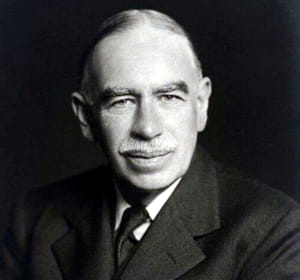If you read the latest OECD publication, “Employment Outlook 2024: The Net Zero Transition and the Labour Market,” you would imagine that the world has not gone through the largest monetary and fiscal stimulus in decades.

The results are so poor, they are embarrassing. Furthermore, the report illustrates the impoverishment of citizens and subtly suggests that achieving the net zero goal will present an even greater challenge. Translation: You will be even poorer.
According to the OECD report, 20% of the global workforce is in jobs that will expand due to the net-zero transition. The report basically tells us that the remaining 80% will face significant challenges.
Furthermore, it highlights that “low-income and rural households usually spend more on goods and services with larger carbon footprints, such as energy and food, because they are typically necessary goods.
Continue reading Net zero will make you poorer. Negative real wage growth is a consequence of Keynesian policies.